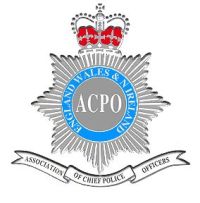Guidance on conferring revised
The Association of Chief Police Officers (ACPO) has said there is no need for officers to compare notes following incidents involving firearms in revised guidelines issued last week, despite strong dispute from the PSAEW and Police Federation.
The Association of Chief Police Officers (ACPO) has said there is no need for officers to compare notes following incidents involving firearms in revised guidelines issued last week, despite strong dispute from the PSAEW and Police Federation.
ACPO stopped short of entirely banning the practice but said records should be made of any discussions that do take place.
The decision to revise guidance was made by the ACPO Chief Constables Council, and falls within the ACPO Firearms Manual on Post-Incident Procedure, which gives guidance on police use of firearms.
Senior officers agreed to address the issue following the judicial review of the Independent Police Complaints Commission (IPCC) and others, brought by the family barrister of Mark Saunders who was shot dead by officers in May.
The revised guidance states that as a matter of general practice officers should not confer with others before making their accounts and the importance is placed on honestly recording their understanding of the situation at the time force was used. It sates there is no need for officers to confer with others about what was in their mind at the time force was used.
The Police Superintendents Association of England and Wales (PSAEW) has signed up to the note-taking practice amendments made by ACPO but said they were strongly of the view that joint note taking was legal, appropriate and should continue to be permitted.
The Police Federation also worked closely with ACPO in making the amendments and maintained that whatever changes were made officers should still be allowed to confer.
Under the new guidance where conferring does take place particular details are to be documented, including:
Time, date and place where conferring took place.
The issues discussed.
With whom.
The reasons for such discussion.
At the judicial review of the case of Mark Saunders, Mr Justice Underhill ruled that the principle of conferring on accounts was highly vulnerable to being challenged under the Human Rights Act and described the practice as an institutionalised opportunity for collusion. He conceded, however, that banning the practice could hinder investigations.
Mr Saunders sister Charlotte welcomed ACPO`s decision to change its guidelines and said that the IPCC can now focus on being more independent and thorough for the remainder of the investigation.
Chief Constable Meredydd Hughes, ACPO lead on uniformed operations, said: Our guidance must serve the public interest, allowing highly-trained and professional officers the space to make critical operational judgments decisively. It must ensure the service remains accountable, and both open and transparent in how it meets legal requirements under human rights law.
This is a difficult and complex issue and in addressing it the police service has demonstrated the quality of its professional leadership and judgment.
A period of time will be required to inform firearms teams and their commanders of these changes and provide the appropriate training and support to respond to the challenges they bring.
Chief Superintendent Graham Cassidy, the Deputy National Secretary who represented the PSAEW at the meetings leading up to the new guidelines, said: Our members were reluctant to change the current rules on note taking but were cognisant that those rules now appear to contravene Article 2 of the Human Rights Act and we have therefore accepted the legal advice supplied to ACPO to amend the guidance.
Paul Davis, from the Operational Policing Sub-Committee of the Police Federation of England and Wales, also stood firm on the need to maintain officers rights to confer. He said: We maintain that conferring before making notes is a long established practice intended to achieve best evidence and ensure accuracy of recollection of events or of an incident.
ACPO must ensure that this new manual and content is supported by appropriate training to all 43 forces in Eng


